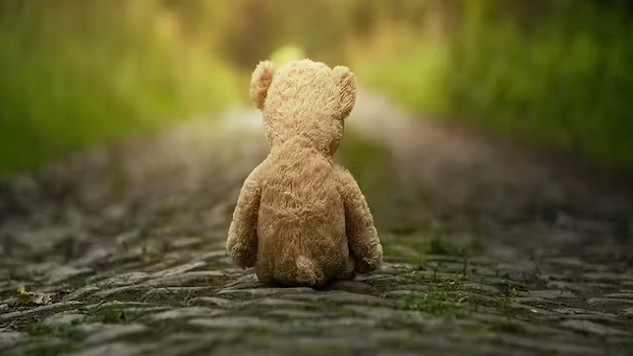If there’s one thing we as humans seem to have in common, it’s that most of us have felt lonely at one time or another. But is the pain that comes with feeling socially isolated simply a part of being human? Why does the world seem so different when we’re feeling lonely?
Recent research has begun to provide some answers. And it turns out that loneliness can affect your perception and cognition.
Although no one enjoys the feeling of loneliness, scientists have argued that humans evolved to feel this way for good reason.
Social relationships are crucial, providing safety, resources, opportunities to have children, and so on. The fact that we find the feeling of loneliness so unpleasant often motivates us to reconnect with others, bringing with it all of these benefits.
But it’s not as simple as that. Feeling lonely can also induce social withdrawal and types of negative thinking, which can make it harder to connect with people.
The lonely brain
Studies have identified differences in brain areas associated with loneliness. In lonely young adults, areas of the brain related to social cognition and empathy have less dense white matter (a large network of nerve fibres that allows the exchange of information and communication between different areas of your brain). But in lonely older adults, brain regions important for cognitive processing and emotional regulation are actually smaller in volume.
A recent study found that the brains of lonely people process the world idiosyncratically. The researchers asked participants to watch a series of video clips while inside an fMRI scanner and found that non-lonely people showed very similar neural activity to each other, whereas lonely people showed brain activity that was dissimilar to each other and to the non-lonely participants. So lonely people appear to view the world differently to others.
Finding friends in fiction
This is also evident in how lonely people view fictional characters. Researchers in the US carried out brain scans on fans of the television series Game of Thrones while these fans decided whether various adjectives accurately described characters from the show. The authors of the study were able to identify activity in the brain that distinguished between real and fictional people.
While the difference between these two categories was clear in non-lonely people, the boundary was blurred for lonelier people. These results suggest that feeling lonely may be associated with thinking of fictional characters in a way similar to real-world friends.
However, given the design of the study, it’s unclear whether the findings suggest loneliness causes this way of thinking or if considering fictional characters in this way causes people to feel lonely. And there’s always the possibility that a third factor causes both outcomes.
Another recent study, this time by researchers in Scotland, provided more evidence of how loneliness can affect your cognition. This study focused on inanimate objects. Participants were shown images of products containing pareidolic faces (face-like patterns) and were asked to give several ratings like how eager they were to explore the product and how likely they were to buy it.
The results showed that lonelier participants (compared with those lower in self-reported loneliness) were more likely to attend to, engage with, and purchase products that showed “happy” configurations. These findings may again provide evidence that loneliness is associated with the drive to find connection, even if it’s with objects.
Indeed, this makes sense in the light of previous work showing that lonelier people are more likely to anthropomorphise gadgets or their own pets.
If we look at these studies and what they seem to be telling us, loneliness is not only the perceived absence of others, but also a desire for connection. Whether that’s thinking of fictional characters like real friends or being drawn to happy objects, our brains seem to search for social connections wherever they might find them, especially when we don’t feel like other humans are providing enough of these for us.![]()
Robin Kramer, Senior Lecturer in the School of Psychology, University of Lincoln
This article is republished from The Conversation under a Creative Commons license. Read the original article.

Books Improving Attitude and Behavior from Amazon's Best Sellers list
"Atomic Habits: An Easy & Proven Way to Build Good Habits & Break Bad Ones"
by James Clear
In this book, James Clear presents a comprehensive guide to building good habits and breaking bad ones. The book includes practical advice and strategies for creating lasting behavior change, based on the latest research in psychology and neuroscience.
Click for more info or to order
"Unf*ck Your Brain: Using Science to Get Over Anxiety, Depression, Anger, Freak-Outs, and Triggers"
by Faith G. Harper, PhD, LPC-S, ACS, ACN
In this book, Dr. Faith Harper offers a guide to understanding and managing common emotional and behavioral issues, including anxiety, depression, and anger. The book includes information on the science behind these issues, as well as practical advice and exercises for coping and healing.
Click for more info or to order
"The Power of Habit: Why We Do What We Do in Life and Business"
by Charles Duhigg
In this book, Charles Duhigg explores the science of habit formation and how habits impact our lives, both personally and professionally. The book includes stories of individuals and organizations who have successfully changed their habits, as well as practical advice for creating lasting behavior change.
Click for more info or to order
"Tiny Habits: The Small Changes That Change Everything"
by BJ Fogg
In this book, BJ Fogg presents a guide to creating lasting behavior change through small, incremental habits. The book includes practical advice and strategies for identifying and implementing tiny habits that can lead to big changes over time.
Click for more info or to order
"The 5 AM Club: Own Your Morning, Elevate Your Life"
by Robin Sharma
In this book, Robin Sharma presents a guide to maximizing your productivity and potential by starting your day early. The book includes practical advice and strategies for creating a morning routine that supports your goals and values, as well as inspiring stories of individuals who have transformed their lives through early rising.

 rangizzz/Shutterstock
rangizzz/Shutterstock























